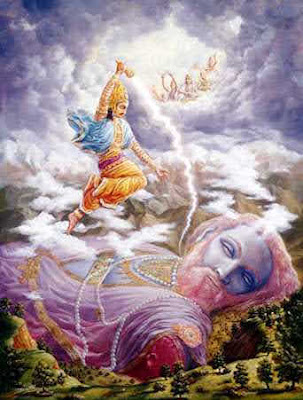("brahmin assassination") Brahmahatya is one of the four major sins that renders one an outcast from society, according to the dharma literature, which instructs on religious obligations.
The gravity of this crime comes from brahmin holiness and prestige; with the exception of self-defense, the intentional murder of a brahmin has severe consequences.
Even gods are susceptible to the bad karmic repercussions of this conduct.
According to Hindu legend, after chopping off one of the deity Brahma's heads, the god Bhairava wanders the world for years.
The skull remains attached to his hand as a conspicuous reminder of his crime until it comes off at Kapalamochana.
The penalty for a brahmin murderer is similar to that of Bhairava in the more mild instructions in the dharma literature.
The killer must carry the deceased man's skull for twelve years while wearing just a ragged cloth to cover his loins, and he must live on alms for the whole time, begging at no more than seven homes each day.
Unless the murder was deliberate, in which case the sentence is quadrupled, he is considered pure after twelve years.
According to many commentators, the only conceivable expiation (prayashchitta) for a brahmin who is killed by a kshatriya, vaishya, or shudra is death.



